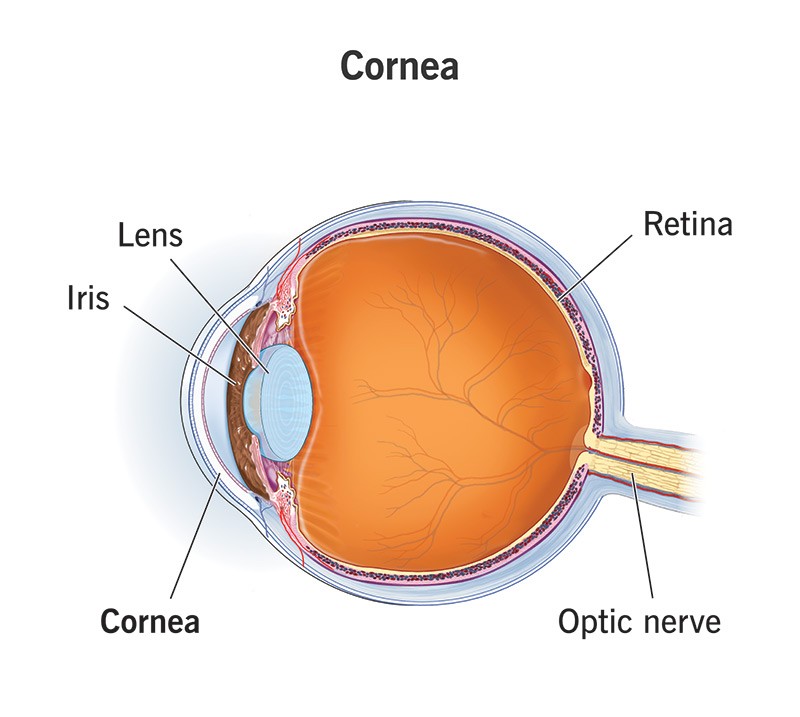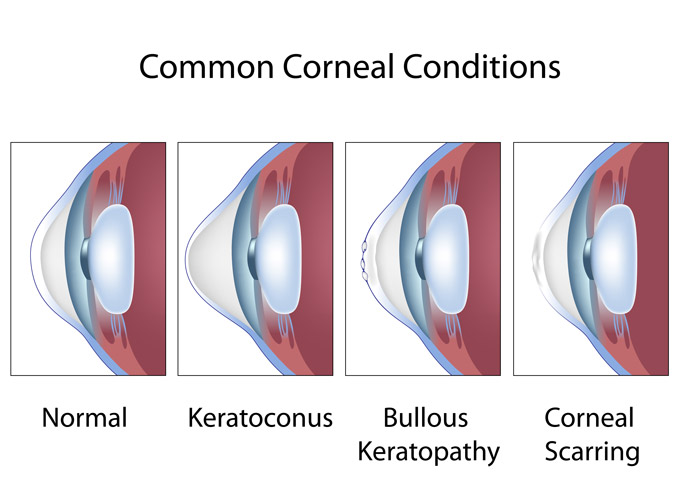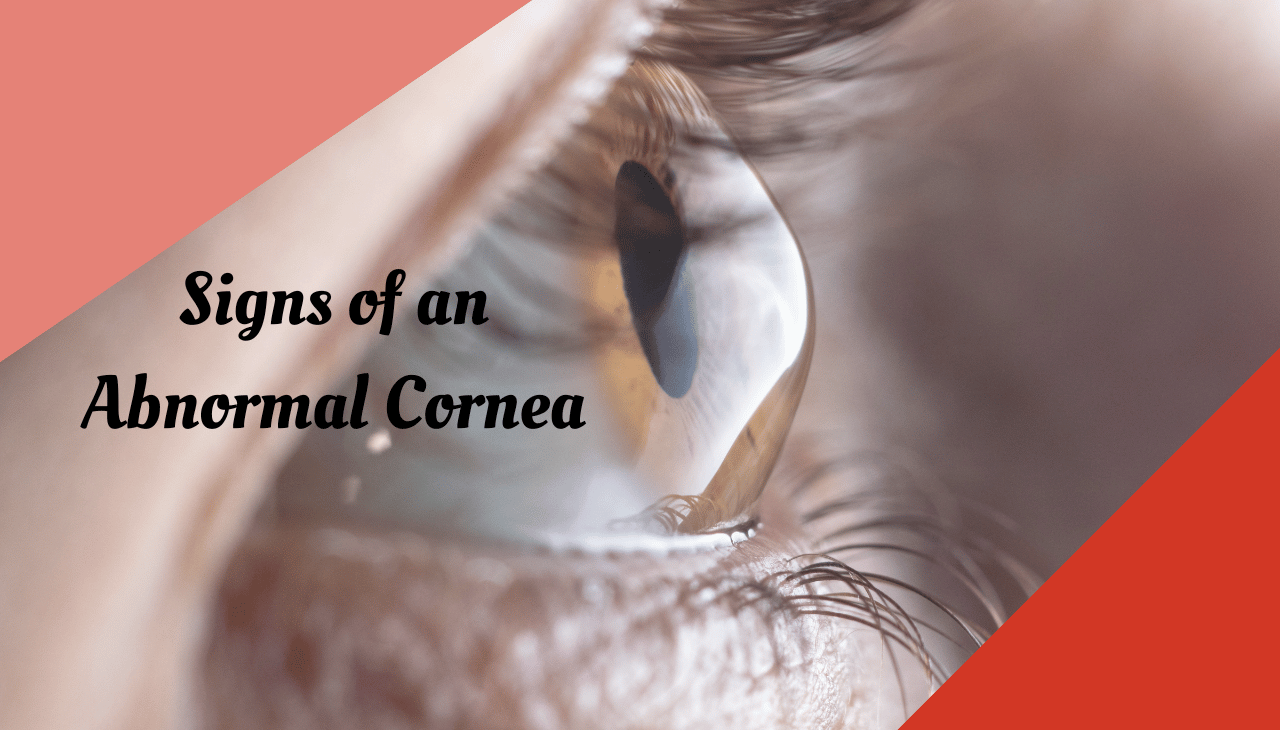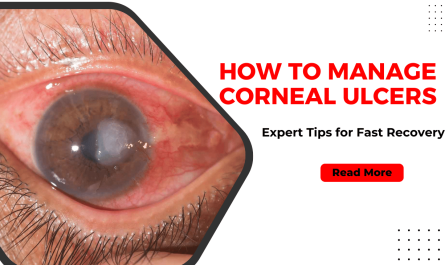Introduction
Your cornea plays a crucial role in how you see the world. It’s the transparent, dome-shaped surface at the front of your eye that helps focus light onto the retina. When something goes wrong with the cornea, it can affect your vision and even your eye health overall.
Recognizing early signs of an abnormal cornea can help you seek treatment before the condition worsens. In this blog, you’ll learn what the cornea does, common symptoms of corneal issues, possible causes, and treatment options. We’ll also share when you should consult an eye care specialist.
Understanding the Cornea

The cornea is the eye’s outermost layer. It functions like a window that controls and focuses the entry of light.
Key points:
- It’s made of five layers: epithelium, Bowman’s layer, stroma, Descemet’s membrane, and endothelium.
- The cornea contributes to nearly 70% of your eye’s focusing power.
- It must remain clear and smooth for optimal vision.
If the cornea becomes swollen, scarred, or irregularly shaped, it can distort your vision. These changes may be caused by diseases, injuries, or infections.
Signs & Symptoms of an Abnormal Cornea
Knowing what to look for can help you take action quickly. Here are some common signs:
Visual Symptoms:
- Blurred or distorted vision
May be due to swelling, keratoconus, or scarring. - Halos around lights or glare at night
Often a result of corneal swelling or dystrophies. - Sudden or progressive vision loss
Could indicate serious infections or advanced disease.
Physical Symptoms:
- Redness and irritation
May suggest an infection or abrasion. - Eye pain or discomfort
Can occur in conditions like corneal ulcers or trauma. - Light sensitivity (photophobia)
Often a response to inflammation or injury. - Excessive tearing or dry eyes
Caused by surface irregularities or nerve damage.
If you notice any of these signs, consult an eye specialist promptly. Ignoring symptoms can lead to permanent vision loss in severe cases.
Causes and Conditions

Several conditions can affect the cornea. Here are some of the most common:
| Condition | Description | Effect on Cornea |
| Keratoconus | A thinning of the cornea that causes a cone-like bulge | Leads to blurred, distorted vision |
| Corneal ulcer | An open sore caused by infection or injury | Causes pain, redness, and vision loss |
| Fuchs’ dystrophy | A disease that affects the inner layer of the cornea | Causes swelling and cloudy vision |
| Dry Eye Syndrome | Reduced tear production or poor tear quality | Leads to irritation and surface damage |
| Trauma or scratches | Physical injury to the eye | Can cause scarring and pain |
| Eye infections | Bacterial, viral, or fungal | May damage corneal tissue if untreated |
Genetics, contact lens misuse, eye surgeries, or autoimmune disorders can also increase your risk of corneal diseases.
Treatments and Best Practices
Treatment depends on the cause and severity of the corneal condition.
Non-surgical Options:
- Prescription eye drops: Antibiotics, anti-inflammatories, or lubricants.
- Contact lenses: Special lenses like scleral or rigid gas permeable lenses for keratoconus.
- Artificial tears: For dry eyes or minor irritation.
Surgical Options:
- Corneal cross-linking: Strengthens the cornea in keratoconus cases.
- Corneal transplant: For severe scarring or dystrophies.
- Phototherapeutic keratectomy (PTK): Removes surface irregularities.
Best Practices:
- Don’t ignore persistent eye discomfort.
- Avoid touching your eyes with dirty hands.
- Clean and change contact lenses as instructed.
- Use protective eyewear during high-risk activities.
Consultation Introduction
Laxmi Eye Hospital is a leading chain of eye care centers across Mumbai and Navi Mumbai. With over 30 years of dedicated service, the hospital is known for its transparency, expert team, and modern infrastructure. Whether it’s a routine eye check-up or advanced corneal treatment, you’re in trusted hands.
Laxmi Eye Institute provides cutting-edge diagnostic and treatment services for Specs Removal (Bladeless LASIK, ICL, IPCL, Contoura Vision LASIK), Cataract, Glaucoma, Diabetic Eye Care, Retina Treatment, and Pediatric Ophthalmology. The Cornea Clinic also offers specialized care for conditions like Keratoconus, Eye Infections, and Eye Donation.
You can consult their experienced ophthalmologists at:
- Panvel: Mulla Hamid Rd, Old Panvel, Navi Mumbai
- Kharghar: Plot 31, Sector 4, Kharghar, Navi Mumbai
- Kamothe: Near ICICI Bank, Pratik Gardens, Sector 34
- Dombivli: SS Business Park, Azde Gaon, Dombivli East
To book an appointment, visit their website or call the respective centers.
Frequently Asked Questions (FAQs)
1. Can an abnormal cornea heal on its own?
Some minor injuries like surface scratches may heal naturally, but diseases like keratoconus or infections need medical attention.
2. How is keratoconus diagnosed?
A corneal topography test maps the shape of your cornea. Doctors may also perform a slit-lamp exam and pachymetry (thickness check).
3. What happens if I ignore a corneal infection?
It can worsen rapidly and lead to permanent scarring or even blindness if untreated.
4. Are corneal transplants safe?
Yes, they are generally safe and have a high success rate. Recovery can take several weeks to months.
5. Is LASIK safe for people with corneal issues?
Not always. People with thin or irregular corneas may not be good candidates. A thorough evaluation is needed.
6. How do I prevent corneal damage?
Use eye protection, manage dry eyes, and avoid rubbing your eyes. Follow your doctor’s instructions for contact lens care.
7. Is blurred vision always related to the cornea?
Not always. Blurred vision can also result from lens issues (like cataracts), retina problems, or optic nerve disorders.
8. Can dry eyes cause corneal problems?
Yes. Chronic dryness can lead to corneal surface damage, irritation, and even infections.
Conclusion
Being aware of the signs of an abnormal cornea is crucial for protecting your vision. Blurred vision, discomfort, or unusual sensitivity to light shouldn’t be ignored. Early diagnosis and treatment can prevent serious complications. If you notice any symptoms, consult a qualified eye specialist at the earliest.
Your vision matters—don’t wait until it’s too late. Visit Laxmi Eye Institute for expert care and advanced treatment options tailored to your needs.




